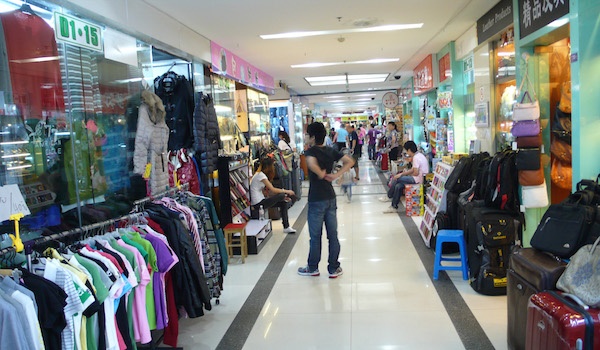Unlike in English, quantifying common names or actions in Chinese is quite complex. There is no equivalent in Chinese to defined articles such as ‘the','a','an'). In order to quantify something, the Chinese language uses numbers/demonstratives followed by a measure word. There are different measure words for different categories of names/actions.

We use measure words:
- Between a number and a noun to quantify
- Between "this" (这 zhè), "that" (那 nà) "each" (每 měi) or “some” (几 jǐ) and a name to designate something
- Between "which" (哪 nǎ) or "how many" (几 jǐ, 多少 duō shǎo) and a name when asking a question
- After a verb to indicate the number of times the action represented by the verb is performed
In this article, we will first talk about the measure words we use to quantify nouns. To learn measure words in Chinese, it is easier to organize them according to their category. They can be structured as specifiers of persons, animals, human bodies, plants, fruits, food, cooking tools, household objects, clothing and accessories, manufacturing, vehicles, items, etc. There are a lot of measure words in Chinese, but don’t be afraid, commonly used ones are not so many.
The most common measure words to quantify words:
个 gè
个 gè is the most commonly used measure word in the Chinese language and defines general nouns or people. It is a useful quantifying word for many words when speaking Mandarin.
一个问题 / Yī gè wèntí / A problem
几个人 / Jǐ gè rén / Some people
三个东西 / Sān gè dōngxī / Three things
If you are at a restaurant, looking at the menu and don’t know how to call a dish, just show the picture to the waiter/waitress with your finger and tell them “I want this: 我要这个Wǒ yào zhège, I want that:我要那个Wǒ yào nàgè”.
本 běn
本 běn means root. When used as a measure word, it defines things with pages. It is one of the first measure words people studying Chinese learn, because when they go to class they need all their studying materials.
一本笔记本 / Yī běn bǐjìběn / A notebook
那本词典 / Nà běn cídiǎn / That dictionary
几本书? / Jǐ běnshū? / How many books?
张 zhāng
When you think about张 zhāng, think about something flat. A lot of flat object such as cards, tickets, tables, photos, etc, are related to this measure word (not books though).
一张桌子 / Yī zhāng zhuōzi / A table
五张火车票 / Wǔ zhāng huǒchē piào / Five train tickets
几张纸 / Jǐ zhāng zhǐ / Some piece of sheets
家 jiā
家 / jiā means home or family. We use it as a measure word to define family or business establishments.
一家商店 / Yī jiā shāngdiàn / A store
两家餐厅 / Liǎng jiā cāntīng / Two restaurants
這家酒吧 / Zhè jiā jiǔbā / This bar
只 zhī
While 个 / gè is used for people, 只 / zhī is generally used for animals. We also use it for some parts of the body such as the legs, feet, hands, (basically the ones that come in pairs.)
这只猫 / Zhè zhī māo / This cat
两只脚 / Liǎng zhī jiǎo / Two feet
一只眼睛 / Yī zhī yǎnjīng / An eye
件 jiàn
件 / jiàn is connected to clothing (except pants), furniture, luggage etc. It is also connected to general matters which is really similar to 个 / gè. If you hesitate between these two measure words, always use 个 / gè. It is the one that works most of the time if we don’t know which measure word to use.
几件衣服? / Jǐ jiàn yīfú? / How many piece of clothing?
一件事情 / Yī jiàn shìqíng One matter/problem
七個件生日礼物 / Qī gè jiàn shēngrì lǐwù / Seven birthday gifts
条 tiáo
The best way to remember how to use this important measure word is that it is often connected with long, narrow, or skinny objects – fish, roads, pants, rivers, and so on.
多少条鱼? / Duōshǎo tiáo yú? / How many fishes?
一条河 / Yītiáo hé / A river
那条裤子 / Nà tiáo kùzi / That pair of jeans (noting that 条 doesn’t not actually mean “pair”. There is another word for that. You’ll see below.)
双 shuāng
Here come the measure word for “pair”. Remember that we don’t use it for a pair of pants.
两双筷子 / Liǎng shuāng kuàizi / A pair of chopsticks
那双袜子 / Nà shuāng wàzi / That pair of socks
一双手套 / Yī shuāng shǒutào / Two pairs of gloves
辆 liàng
We use this measure word for every type of vehicle that has wheels such as cars, motorcycles, bikes, etc (but not trains).
一辆自行车 / Yī liàng zìxíngchē / A bike
十辆公车 / Shí liàng gōngchē / Ten buses
这三辆摩托车 / Zhè sān liàng mótuō chē / These three motorcycles

If you already know these or want to learn even more, here are some others often used in daily life:
把bǎ (chair, knife, umbrella, toothbrush; objects with handles )
這把椅子 / Zhè bǎ yǐzi / This chair
一把刀 / Yī bǎ dāo / A knife
一把扇子 / Yī bǎ shànzi / A fan
包bāo ( pack of cigarettes; packets of objects )
六包香烟 / Liù bāo xiāngyān / Six packets of cigarettes
两包大米 / Liǎng bāo dàmǐ / Two sacks of rice
一包衣服 / Yī bāo yīfú / A bundle of clothes
杯bēi/灌guàn/瓶píng
一杯水 / Yī bēi shuǐ / A glass of water
六灌可乐 / Liù guàn kělè / Six cans of coke
一瓶酒 / Yī píng jiǔ / A bottle of alcohol
封fēng ( letter (written document))
一封信 / Yī fēng xìn / A letter
根gēn ( bananas; other long, slender objects )
一根烟 / Yī gēn yān / A cigarette
八根香蕉 / Bā gēn xiāngjiāo / Eight bananas
塊kuài ( soap; piece of land; Olympic medals; other things that come in hunks, chunks, or lumps; a measure of currency )
一块蛋糕 / Yī kuài dàngāo / A piece of cake
两块肥皂 / Liǎng kuài féizào / Two cakes of soap
一千块钱 / Yīqiān kuài qián / A thousand yuan
群qún ( crowd; group (of people); flock (of birds, sheep); swarm (bees); herd (animals) )
一群人 / Yī qún rén / A group of people
一群学生 / Yī qún xuéshēng / A group of students
首shǒu ( poems and songs )
一首歌 / Yī shǒu gē / A song
这首诗 / Zhè shǒu shī / This poem
台tái ( computers; televisions; radios; other machines )
那台电脑 / Nà tái diànnǎo / That computer
一台平板 / Yī tái píngbǎn / An electronic tablet
套tào (set (of furniture, stamps) )
一套书 / Yī tào shū / A set of books
一套规章制度 / Yī tào guīzhāng zhìdù / A set of rules and regulations
种zhǒng ( kind,sort,type )
一种花 / Yī zhǒng huā / A kind of flower
一种狗 / Yī zhǒng gǒu / A kind of dog
这种人 / Zhè zhǒng rén / This kind of person
Note:
- 个 gè is the only measure word you can use when you actually don’t know which one to use. It will never be 100% correct if you say一个狗Yī gè gǒu, but it can still be understandable. However, if you say 一件狗Yī jiàn gǒu, then it wouldn’t make sense anymore.
- Thanks to measure words, you can even ommit the noun in some circumstances. For example, you’re celebrating a birthday and would like to eat a piece of cake. You can of course say “I would like a piece of cake我想要一块蛋糕”, but you can directly say “我想要一块”. Once you know which object you are talking about, you can ommit the noun. Here is an example:
这件(衣服)很好看 / Zhè jiàn (yīfú) hěn hǎokàn / This piece of clothing looks good
这本(书)好无聊 / Zhè běn (shū) hǎo wúliáo / This book is boring
我买了两张(地铁票) / Wǒ mǎi le liǎng zhāng (dìtiě piào) / I bought two metro tickets
他喝了兩瓶(啤酒) / Tā hē le liǎng píng (píjiǔ) / He drank two bottles of beer
你买了几根(香蕉)? / Nǐ mǎi le jǐ gēn (xiāngjiāo)? / How many bananas did you buy?
Measure words may be scary for beginners when learning Chinese. However, they are really easy to learn once you practice Chinese on a daily basis. Try to learn them with sentence examples that you use frequently, and make sure to remember them as soon as possible. And if when you talk you suddenly forget which measure word to use, don’t forget to say 个 gè ;)
